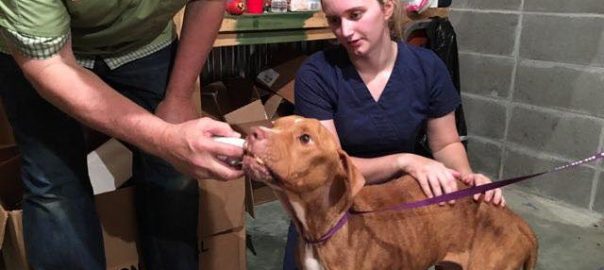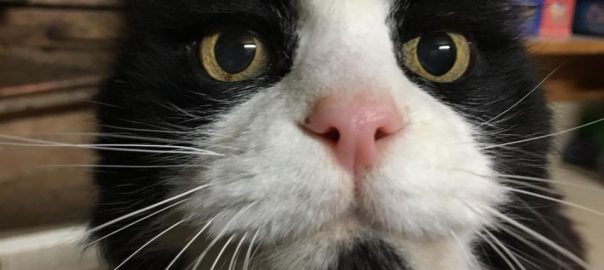Last weekend, I joined the American Humane Rescue team at St. Landry Parish Animal Control & Rescue offering a free clinic for hundreds of shelter animals and local pets. With medications supplied by Zoetis Petcare and veterinarians and vet students onsite, we offered critical veterinary services to animals in need.
Like so much of the life-saving work they do, American Humane could not offer this free clinic without the support of animal lovers like you. Please make a donation to help support the clinic and their other efforts to help animals in need of rescue, shelter, and care: http://americanhumane.org/free-clinic
I also want to personally recognize Stacey McKnight, the shelter manager at St. Landry Parish, for the gut-wrenching work she does; the morning of the clinic, she’d had to put a puppy down who was suffering uncontrollable seizures caused by distemper — which since our own QT Pi Becker is a distemper survivor shelter puppy, just broke my hear. She’s been working 12 hour days, 7 days a week, and hasn’t had a vacation day in three years — but she and her team have changed the kill rate from 96 percent when she took over three years ago to 9 percent today. Incredible!
Of course, the American Humane organization in general, and team members on site specifically, deserve hearty recognition and appreciation. They were nothing short of amazing. Dr. Lesa led us with order and discipline like we were on a military deployment where everybody high-fives, back-slaps, encourages, and loves. Mari was capturing magical moments and everybody, everybody, rolled up their sleeves and got hot, sweaty, and dirty. I saw countless instances where what American Humane team members provided, beyond necessary resources like the RedStar facility or wormers and vaccines, was love.
So many of these three hundred plus animals were starved for physical contact by a loving human. Yes, they were very well taken care of at this shelter with the basics of food, water, shelter, and veterinary care, but they needed to be held, cuddled, scratched, spoken to about the fact they are precious, loved, and that we were all working hard to move them from a cage to a couch at their forever home.
While I’ve supported American Humane as a board member and financially for many years, I pledge now along with my beloved wife, Teresa, to dig deeper to help this amazing organization. Please join me: http://americanhumane.org/free-clinic
Finally, as I shared on Facebook, Teresa and I fell in love with a precious dog named Relic who was one of the worst neglect and abuse cases I’ve ever seen. Every bone in his body was visible, and I don’t know how he survived. He’s heartworm positive and is emaciated, but if he pulls through, he’ll be joining us at Almost Heaven Ranch. We’re now calling him Lazaruff, because the intake veterinarian believed he was essentially dead when he came in.
Lazaruff is being treated at Bellevue Animal Clinic by Dr. Kevin Fuselier, and I’ll keep you updated on his progress. Please keep him in your prayers until he’s safely home!





